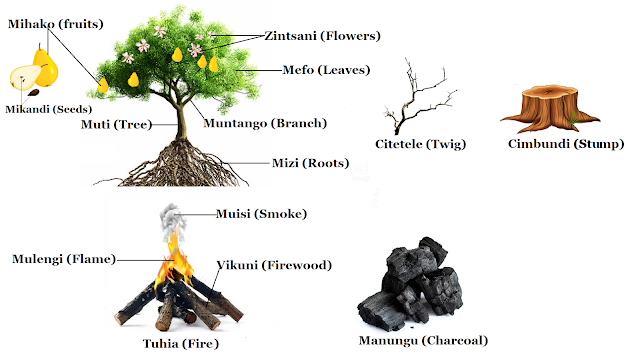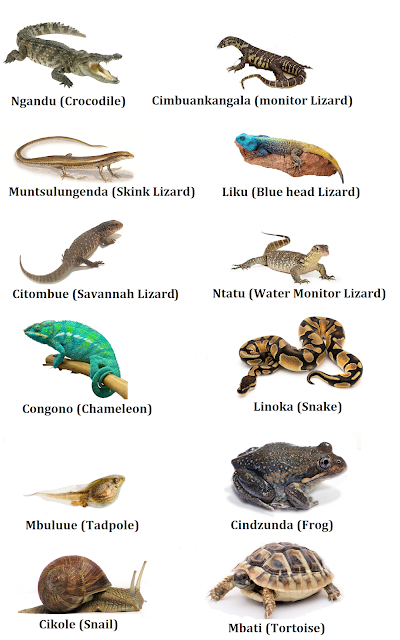Consonantal combination/glides
The consonantal combination are formed and written by combination of two or three consonants. In Luchazi, letter J is always preceded by letter N and pronounced as in English. These consonantal combinations are: 1. "Mb" as in mbolokota (to chew with a crushing noise). 2. "Mp" as in mpundu (rightly/truly). 3. "Nc" as in muncinda (mountain). 4. "Nd" as in ndonga (river). 5. "Ndz" as in ndzimba (ignorant). 6. "Ng" as in ngendzo (bell). 7. "Nj" as in Njambi (God). 8. "Nk" as in nkole (foe). 9. "Nt" as in ntunda (shoreline/shore). 10. "Nts" as in ntsenge (kitchen). 11. "Ts" as in tsiliela (faith/trust). Here are some words with consonantal combinations: 1. Mbuatama = to sit down heavily or lazily. 2. Mbimbiliya = Bible. 3. Mbuto = seed. 4. Mbimba = locust. 5. Mbimbo = thorn. 6. Mbambo = nail/peg. 7. Mbimbi = wailing. 8. Mbimbiamitue = weeping/wailing. 9. Mbendo = flute. 10. Mbeli = ...


